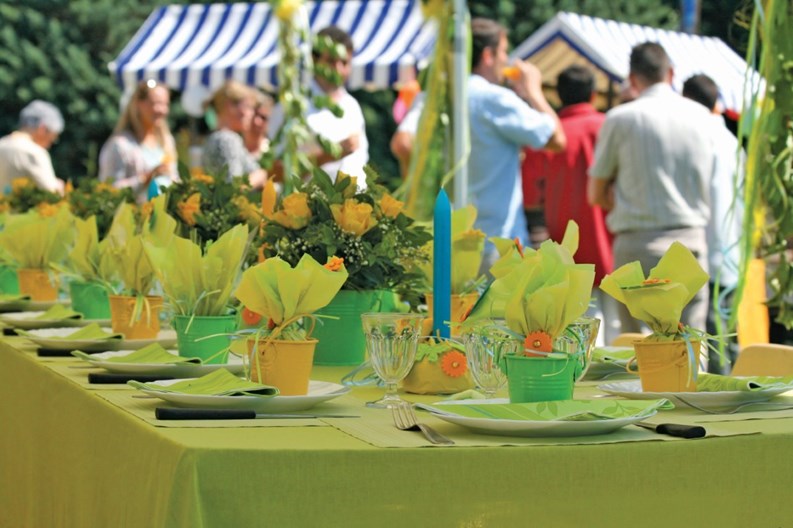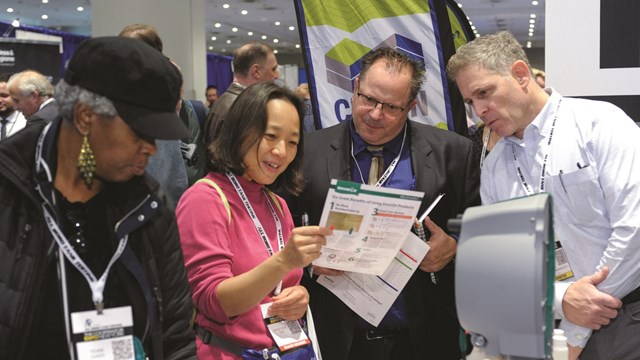The ferocity of the current recession has touched nearly every aspect of life, from fears about job loss to concerns about health care to homeowners’ worries about foreclosure. With shrinking budgets and worrisome bottom lines, condo communities throughout the country are looking for ways to cut costs, reduce spending and preserve resources.
Some communities are cutting back or eliminating community programming in an effort to save those dollars. Not wanting to forfeit the cohesiveness and community spirit programming fosters, resourceful boards, managers and residents are looking beyond traditional programming to create low- or even no-cost alternatives.
On the surface, it may seem like community programming is simply a nice but expendable luxury, but community management professionals disagree. For an HOA without any kind of programming, there can be a “definite disconnect with the community,” says Alan Crawford, owner of Crawford Community Management Services based in Rumson. “People come home from work, pull their cars into the garage and go from the garage straight into their houses. They don’t walk around their communities. It can be especially disconnected for children.”
That’s why programs that bring homeowners together to meet and get to know their neighbors is important. “Especially in these times, it’s important to keep a sense of community,” says Denise Lindsey, vice president of Access Property Management, based in Flemington, New Jersey.
Elaine Warga-Murray, CEO of Regency Management Group in Howell, New Jersey, agrees. “I believe it is imperative to maintain an active scheduling of events, for maintaining both community identity and morale,” she says. “Even if all residents are not able to participate, communicating that there are scheduled events is neighborly and shows that there are interested people.”
Deciding Priorities
For many buildings and associations, it may be a matter of deciding what programs or activities make the most sense to keep based on what appeals to the largest audience, what can be done most economically and what is most effective in bridging the distances between neighbors.
“Any unnecessary expenses should be reduced, of course,” Lindsey says, but for things like annual meetings, where residents are used to being able to gather and talk with their board and management, it’s important to keep those things going. Keep the meetings as much the same as possible, she adds. “It’s something that’s needed to keep people together and maintain continuity.”
For less frequent events—children’s birthday parties hosted in the clubhouse, perhaps—associations are encouraged to continue that as well, says Lindsey. “We want our residents to have a sense of and be connected to their community.”
“We still try to create a social hour at least once a quarter,” according to Crawford. “And we’ve been doing meet-and-greets twice a year so new residents can meet each other. Limited programs like that are still being done.”
The meet-and-greets are particularly important, Crawford says. “They help new residents to feel like they’re part of something.” And, just in terms of the nuts-and-bolts of joining a new community, it helps people get oriented and situated. “They get to meet the board and they meet [the management],” Crawford says. “And it gives them a sense that they know who to contact if they have problems.”
Warga-Murray agrees. “Some regular social events are important for new residents.” For condo communities inhabited by older residents who may spend much of the fall and winter months in other warmer climates, away from their New Jersey homes and neighbors, those types of meet-and-greet gatherings can provide reassurance that their homes are in good hands while they are away.
Getting Creative
A few years ago, some condo communities may have been fortunate enough to have someone on staff whose job it was to help plan and put together programming and social events. These days, with staff and budget cutbacks, many of those same employees are either no longer there or are being asked to tackle other roles.
“If the association cannot afford to pay for a recreation director, volunteers can be helpful,” says Warga-Murray. “However, it depends on the community demographics and availability. Obviously, residents who are home during the day—retirees, stay-at-home moms—are more likely to volunteer to assist with social and recreation programming.”
And managers, volunteers and other planners are starting to get creative when it comes to new programming and events. “We are starting to think outside the box now,” Crawford says. He cites recent examples of communities that decided to host association-sponsored yard sales and garage sales. Planning an event like that brought neighbors, board members and association staff together while the event itself brought residents out of their homes and into their front yards, providing a chance for people to bond across the lot line. The event also brought dollars into family homes, helping ease the budgetary bottom line for at least a few families. “Say you have a community with a high delinquency rate, where every dollar counts,” says Crawford. “This kind of thing can really help.”
Crawford describes another event that a number of his communities have taken part in which involved the recycling of technical equipment—computer monitors, laptops, TVs and other things that might simply be relegated to the landfill. With promotion from management, residents got involved in gathering these materials and shipping them to a tech recycling firm. “It was a community event where people got to know each other, they helped the environment by recycling and 20 percent of the money raised was donated back to the community,” Crawford says. “You weren’t really thinking about things like that two or three years ago, but it’s different now, especially with people thinking greener.”
Community-based events and networks also can be enhanced by working together with other small condo communities in the neighborhood or even non-profit organizations such as churches. One condo community wanted to replace some fencing as part of a community project. They were reluctant to move forward because of the cost involved. Some residents got creative and joined forces with another nearby community and a local church to buy their materials in bulk and lower the cost of the materials. Again, this was something that brought residents together not only with their neighbors, but with others within the greater community and at the same time helped the bottom line.
Taking it Online
Other homeowner associations are looking online to help build the sense of community that programming may have filled in the past. “There are other ways to build community,” Lindsey says. “Websites and blogs and message boards all work well.” For example, Lindsey says, if a community has a message board, it can be a place where residents can share job tips or job leads. “A lot of people are losing their jobs these days,” she says. “Someone may be able to post something on the community website—maybe offer introductions, or help someone find job opportunities.”
Message boards and blogs also can help fill needs for the board and management. Whereas in the past, perhaps they had more of a chance to talk to their residents face to face at social gatherings or programs, they are able to read comments from residents and respond back, ensuring that dialogue continues even if it is being conducted online instead of in person. “The boards like to see the feedback on the pulse of the community,” Lindsey says. “What are people saying and thinking? Are they using the pools? Using the tennis courts?”
One way to help programming and social events remain vital to the community is to ensure good attendance. Events are only effective and enjoyable if people actually turn up. With that in mind, Crawford says, be sure to put your events on the calendar way ahead of schedule. Make sure new residents know about them when they move in. Remind current residents with frequent mentions on the websites or through the community’s print or e-newsletter. Get the word out and build enthusiasm, and programming—even if it’s reduced for the time being—will remain a vital part of the community’s way of life.
Stay Optimistic
Maintaining programming and special events may not seem that important right now when the economic news each day is so glum, but boards and managers need to remember that the things that things will change and the communities that retained their quality will flourish when the good times come again. People are attracted to vibrancy. And more importantly, quality of life is just as important to a resident as clean streets and manicured lawns.
“A lot of communities are weeding out non-essential programs,” Crawford says. “But if you live in a community association, the focus should be on community and not other things.” Building a network of families and neighbors through shared experiences enhances daily living for everyone involved, adding emotional value to a property even in the darkest of economic days.
Liz Lent is a freelance writer, teacher and a frequent contributor to The New Jersey Cooperator.





Leave a Comment